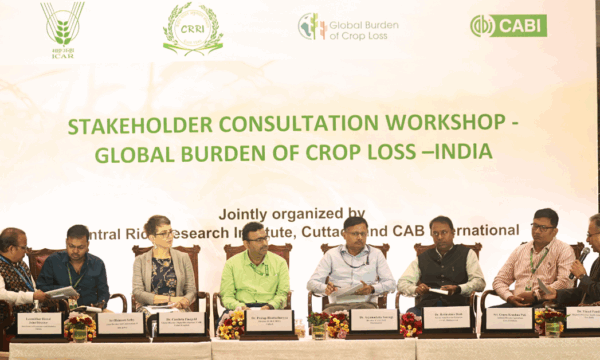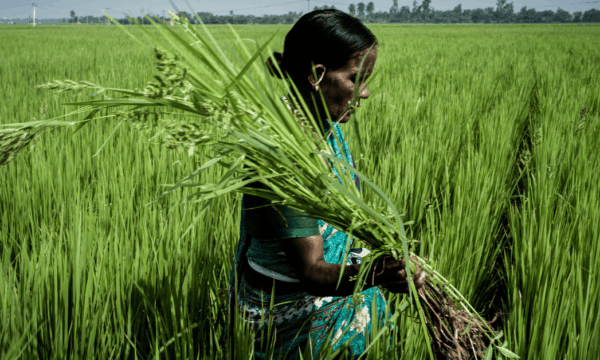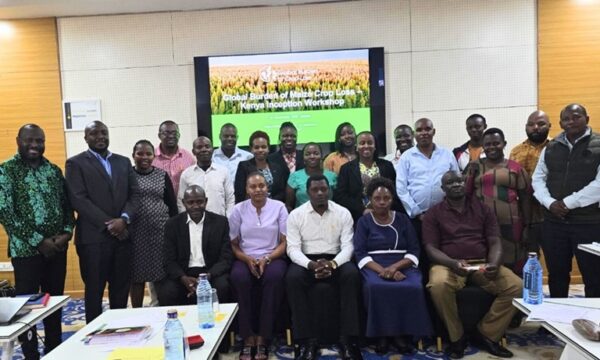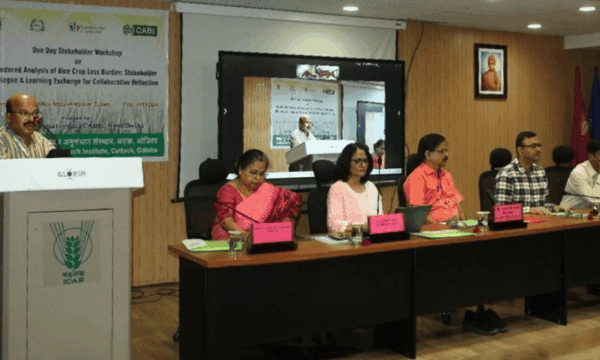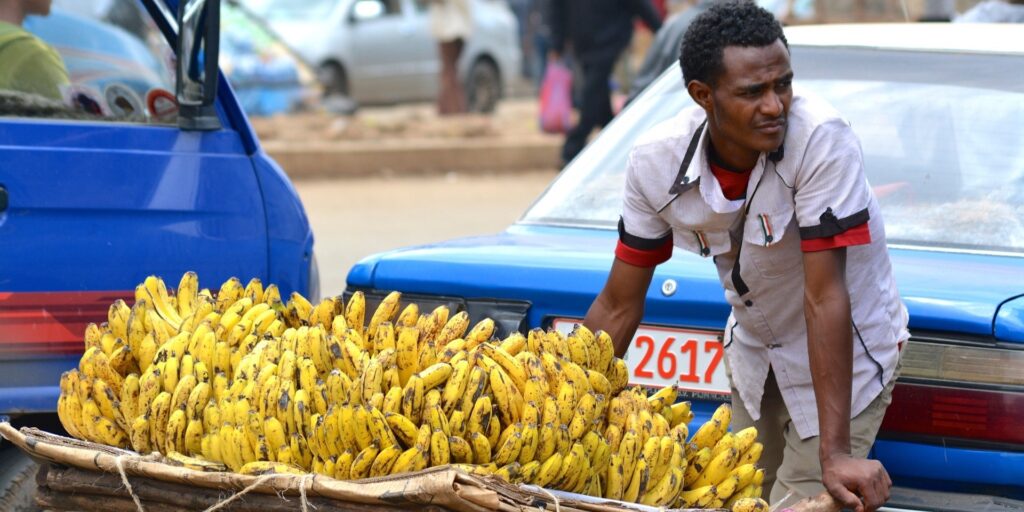
Every year, up 40% of crops are lost globally before they are even harvested. This loss, estimated by the Food and Agriculture Organization (FAO), undermines food security, farmer livelihoods and economic stability. However, the problem is poorly understood, preventing effective action to reduce losses.
Crop productivity is increasingly at risk from pests, plant diseases, and the effects of climate change. For example, the fall armyworm is a major pest of maize crops and CABI research in 2021 found that in Africa it caused highest annual yield losses estimated at USD $9.4 billion.
Data on the actual losses are often outdated, lacking in detail, not shared, or missing. Moreover, the growing demand for food continues to be a major challenge. With the global population expected to rise to nearly 10 billion by 2050, there is ever greater need to produce significantly more food, while being mindful of the need to preserve sensitive biodiversity and ecosystems.
The Global Burden of Crop Loss (GBCL) initiative aims to generate trusted, actionable estimates of crop loss to improve global decision making and to improve food systems. With support from the Gates Foundation and UK International Development from the UK government, the project is focusing on estimating the economic burden of crop losses in maize, wheat, rice, cassava, banana, and cowpea.
“In a world facing the dual crises of climate change and food insecurity, we cannot afford to lose what we already grow. The Global Burden of Crop Loss aims to close a critical data gap—providing the evidence needed to better protect crops, improve livelihoods, and strengthen food systems from the ground up,” said Cambria Finegold, Global Director, Digital Development at CABI, who is leading the GBCL project.
“To reduce crop losses, decision-makers need to better understand the scale, magnitude and the factors contributing to these losses,” Finegold said.
Global collaboration for greater impact
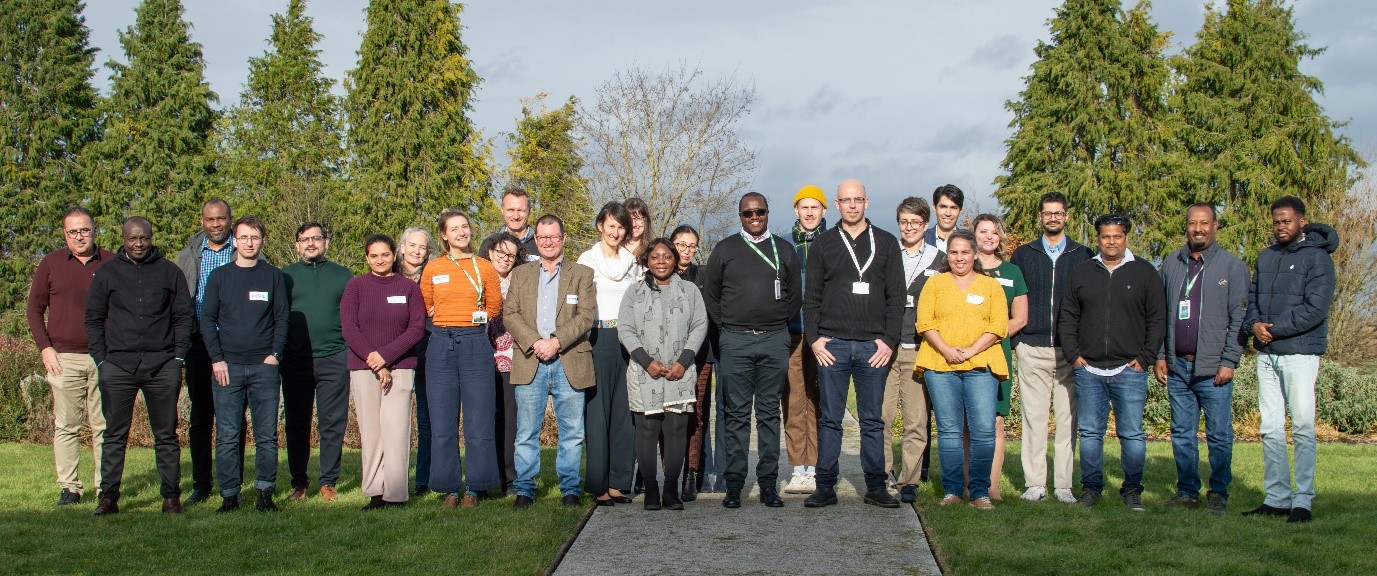
Working with partners to achieve their goal is an integral part of the GBCL project, as demonstrated by the recent kick-off workshop that brought together a wide range of partners.
The project strongly emphasizes gender and the specific economic burden that is felt by farmers when managing pests and pathogens. Key participants in the workshop included University of Exeter, Rothamsted Research, AbacusBio, Cervantes Agritech, and CIMMYT, who each bring their own expertise in areas such as crop loss assessment, economic analysis, biotic impact modelling, and crop modelling.
“It is fantastic to bring such a diverse group of collaborators to the project. Our team brings together knowledge from different regions and disciplines, creating a strong core of experience for the project to draw from,” said Rasaki Arasah, GBCL’s Project Manager at CABI.
“The kick-off event was an excellent opportunity to connect and build the relationships that will carry this work forward,” he continued. “Most importantly, it allowed us to align on our shared goals and ensure we’re moving in the same direction.”
Empowering decision-makers with impactful data
It is the need for decision-makers to acquire more robust economic estimates to support planning and prioritization that is one of the driving forces behind the GBCL initiative. This includes the necessary big-picture information with the coverage that decision-makers require to assess different options and allocate the necessary resources.
From an early stage, the team conducted interviews with multiple organizations, from funding agencies and ministries of agriculture to university researchers, non-governmental organizations, and private companies.
The team also interviewed important stakeholders in the international plant protection system, including representatives from FAO, International Plant Protection Convention, and several regional and national organizations. These discussions helped the team to pinpoint where the biggest information gaps lay.
Dr Anna Szyniszewska, Technical Lead, Global Burden of Crop Loss at CABI, said: “Robust data modelling of crop and economic burden is essential to understanding the true scale and impact of crop loss. By generating actionable insights, we’re equipping policymakers and researchers with the evidence they need to make informed decisions.”
Using modelling to show the true scale of crop loss
The project has made steady progress modelling crop loss in 2024, maintaining its goal to improve data-driven decision-making in plant health. A global dataset of over 230,000 global observations was a core factor. This included environmental factors (including climate and soil properties), socio-economic variables, and agronomic inputs such as fertilizer application and irrigation.
These estimates were then compared to yields reported by FAO to generate “crop loss envelopes”, which provided a country-level assessment of yield gaps. At the same time, GBCL conducted a global assessment to determine the level of crop loss related to biotic (insects and pests) and abiotic (shock events, such as those which are weather-related).
During this process, some countries observed unexpectedly low losses, which led to the team developing a refined methodology to measure attainable and actual yields. A CABI-led review on maize losses in Ghana was commissioned, laying the foundation for future assessments of other key crops such as maize in Kenya and wheat in Ethiopia.
Looking ahead
The GBCL initiative is continuing to build momentum. Several activities that are planned include to develop a dashboard that enables users to explore and download crop loss data. The beta version is expected for later this year and will serve as a valuable resource for policymakers, researchers, and development partners.
Moreover, the project also includes targeted efforts to strengthen data infrastructure, engage with stakeholders, and sharing findings more widely to ensure they are actively used.
“We are excited about the journey ahead and the potential of a lasting impact of the project, from data visualization tools to sustained stakeholder engagement. By continuing to address data gaps, foster collaboration, and deliver actionable insights, the GBCL initiative will help to reshape how the world understands and responds to crop loss and ensuring that we can protect more of what we grow,” said Cambria Finegold.
Additional information
Main image: Banana seller looks on (credit: lauradbusiness0, Pixabay)
Relevant news and stories:
The Global Burden of Crop Loss: Evidence-based systems to tackle food security
Can artificial intelligence really help solve global crop loss?
Almost all of Africa’s maize crops is at risk from devastating fall armyworm pest, study reveals
Related News & Blogs
Highlights from 2025: Most read blogs
As 2025 draws to a close, we’ve reviewed the numbers to highlight this year’s achievements on the CABI Blog, from pest risk reduction and innovative agricultural initiatives to addressing crop loss and earning global recognition. Revisit this year’s to…
16 December 2025


